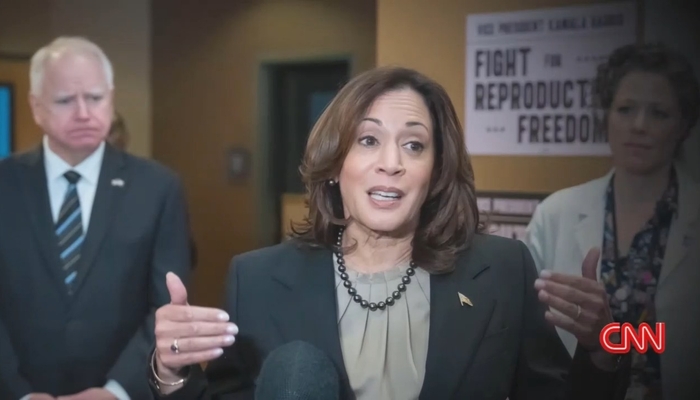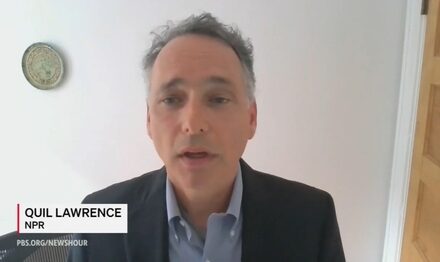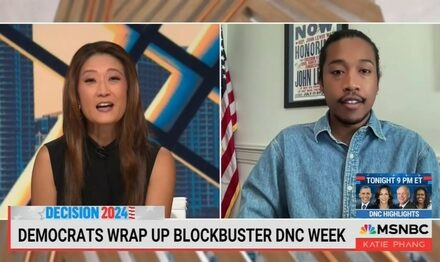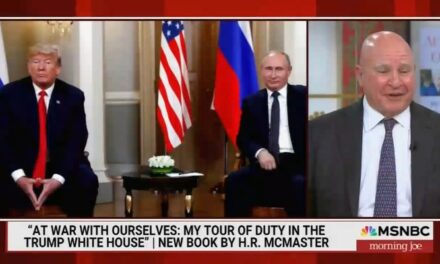We support our Publishers and Content Creators. You can view this story on their website by CLICKING HERE.

For its Labor Day evening programming, CNN ran hour-long documentaries on Kamala Harris and Donald Trump that sought to explain where each candidate stands on the issues and their records. If Harris wants to campaign on abortion, she might not need to anymore because the Harris episode heaped copious amounts of praise on her for her abortion activism.
As part of the documentary, narrator Audie Cornish interviewed California Senator and Harris’s replacement, Laphonza Butler, and claimed, “It’s interesting to me that she would embrace this, not for just the obvious reasons of being a woman politician, et cetera. But it is right at the moment when, in some states, abortion would be criminalized specifically, right? So now, it makes sense that the prosecutor wants to jump in.”
Butler, naturally, also hyped Harris’s reaction to Roe v. Wade’s demise, “The rolling back of Roe was an abject attack on people, women who actually needed to get reproductive care and so, her comments about “how dare they,” the rejection of this sentiment that other people, men, can make decisions about what rights women have about their own bodies. And so, when those rights were stripped away, of course, the prosecutor in her showed up.”
CNN political commentator and former Harris communications director Jamal Simmons added, “That’s the place where her legal mind really kicked in and she saw how the implication of this decision would go into so many other areas of Americans’ lives that maybe most people didn’t anticipate.”
Later, Cornish recalled Harris’s visit to a Planned Parenthood and told another former Harris communications director, Ashley Etienne, that, “Visiting a clinic, that’s something politically that was seen as like a fascinating moment.”
Etienne was happy to provide her former boss with some more praise, “Yes, and she also took the message into those suburban areas that we typically don’t go into.”
After Cornish added that Tim Walz joined her on that trip, former CNN White House reporter and current NOTUS reporter Jasmine Wright observed, “Walz really impressed her by being by her side in that moment. And so, I think it is a doubling down on the understanding that this campaign is in so many ways about reproductive rights.”
While the abortion portion of the documentary was the most gushing, there were other moments as well. On the border, Cornish played a 2021 clip of Harris in Guatemala where she declared, “I want to be clear to folks in this region who are thinking about making that dangerous trek to the United States-Mexico border, do not come, do not come. The United States will continue to enforce our laws and secure our border.”
Cornish then asked Etienne what Harris’s reaction was to “how that was received.” Etienne claimed, “It wasn’t well-received coming from the daughter of immigrants and a Black woman. So, that was a moment in which I think we realize that, okay we have to talk about these things differently, although its the company line. We can’t toe that line in the same way that Joe Biden can.”
Lastly, Cornish harkened back to the early days of the Biden administration and the fight over so-called “voting rights.”
Earlier in the program, Connecticut Sen. Chris Murphy suggested that if Democrats win both houses of Congress, they could eliminate the filibuster, and now he added, “Kamala is committed to voting rights and democracy reform, and I think it’s actually going to be essential that she run on that message.”
While “democracy reform” may be an all-time euphemism, New York Times national politics reporter Astead Herndon didn’t see what the problem was, “If those things don’t happen, then the possibility of passage of things like voting rights completely evaporate.”
Voting rights will not evaporate if Democrats fail to win a trifecta in November. That’s hysterical fearmongering from CNN under the guise of a documentary.
Here is a transcript for the September 2 show:
CNN The Whole Story With Anderson Cooper: Where Harris Stands: Fight for the White House
9/2/2024
8:13 PM ET
AUDIE CORNISH: It’s interesting to me that she would embrace this, not for just the obvious reasons of being a woman politician, et cetera. But it is right at the moment when, in some states, abortion would be criminalized specifically, right?
So now, it makes sense that the prosecutor wants to jump in.
LAPHONZA BUTLER: The rolling back of Roe was an abject attack on people, women who actually needed to get reproductive care and so, her comments about “how dare they,” the rejection of this sentiment that other people, men, can make decisions about what rights women have about their own bodies.
And so, when those rights were stripped away, of course, the prosecutor in her showed up.
JAMAL SIMMONS: That’s the place where her legal mind really kicked in and she saw how the implication of this decision would go into so many other areas of Americans’ lives that maybe most people didn’t anticipate.
…
CORNISH: Visiting a clinic, that’s something politically that was seen as like a fascinating moment.
ASHLEY ETIENNE: Yes, and she also took the message into those suburban areas that we typically don’t go into.
CORNISH: With her on that tour, her future running mate, Minnesota Governor Tim Walz.
JASMINE WRIGHT: Walz really impressed her by being by her side in that moment. And so, I think it is a doubling down on the understanding that this campaign is in so many ways about reproductive rights.
KAMALA HARRIS: We trust women to know what is in their best interests and not have their government telling them what to do.
ASTEAD HERNDON: Abortion rights are quite literally on the ballot and so for a lot of people that is going to be just as motivating for a reason to come to the polls as anything else.
…
CORNISH: Her first official trip abroad as vice president, Guatemala in June of 2021. She talked about the role of women and economic development there. But Harris also delivered a stark message.
HARRIS: I want to be clear to folks in this region who are thinking about making that dangerous trek to the United States-Mexico border, do not come, do not come. The United States will continue to enforce our laws and secure our border.
CORNISH: “Do not come, do not come” — what was her reaction to how that was received?
ETIENNE: It wasn’t well-received coming from the daughter of immigrants and a Black woman. So, that was a moment in which I think we realize that, okay we have to talk about these things differently, although its the company line. We can’t toe that line in the same way that Joe Biden can.
…
CORNISH: Despite an aggressive campaign from Vice President Harris and President Biden, Congress failed to pass the voting rights bills.
HARRIS: The motion is not agreed to.
HERNDON: So rather than being a signature accomplishment, I think the issue functioned in the first couple years as a signature failure.
CORNISH: Harris promises as president, she’ll keep pushing.
HARRIS: When I am president, we are going to finally pass the John Lewis Voting Rights Act and the Freedom to Vote Act.
MURPHY: Kamala is committed to voting rights and democracy reform, and I think it’s actually going to be essential that she run on that message.
CORNISH: But passing any voting rights legislation likely comes down to winning both the House and the Senate.
HERNDON: If those things don’t happen, then the possibility of passage of things like voting rights completely evaporate.

 Conservative
Conservative  Search
Search Trending
Trending Current News
Current News 





